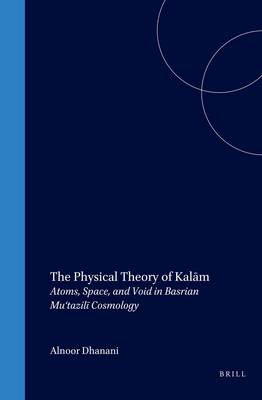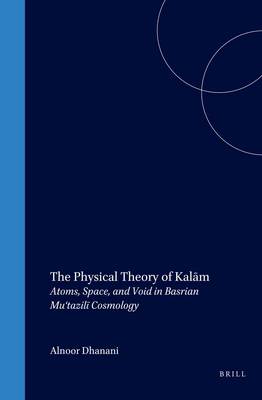
- Afhalen na 1 uur in een winkel met voorraad
- Gratis thuislevering in België vanaf € 30
- Ruim aanbod met 7 miljoen producten
- Afhalen na 1 uur in een winkel met voorraad
- Gratis thuislevering in België vanaf € 30
- Ruim aanbod met 7 miljoen producten
Zoeken
Omschrijving
This book reconstructs the theories of matter and space of the mutakallimūn of the tenth and eleventh centuries A.D. It uses texts which have only recently become available.
The book presents material which challenges our previous understanding of kalām atomism. In particular, it analyzes the concept of atoms as a 'space-occupying object' without dimension yet having magnitude. It examines the manner of the atom's occupation of space, and discusses arguments for and against unoccupied spaces or the void.
A detailed examination of the paradoxical nature of such an atom follows. The argument is made that a 'discrete' rather than a 'continuous' conception of space, matter, time, motion and indeed geometry underlies kalām physical theory. In this respect, the kalām atom is similar to the Epicurean minimal part.
The book presents material which challenges our previous understanding of kalām atomism. In particular, it analyzes the concept of atoms as a 'space-occupying object' without dimension yet having magnitude. It examines the manner of the atom's occupation of space, and discusses arguments for and against unoccupied spaces or the void.
A detailed examination of the paradoxical nature of such an atom follows. The argument is made that a 'discrete' rather than a 'continuous' conception of space, matter, time, motion and indeed geometry underlies kalām physical theory. In this respect, the kalām atom is similar to the Epicurean minimal part.
Specificaties
Betrokkenen
- Auteur(s):
- Uitgeverij:
Inhoud
- Aantal bladzijden:
- 220
- Taal:
- Engels
- Reeks:
- Reeksnummer:
- nr. 14
Eigenschappen
- Productcode (EAN):
- 9789004098312
- Verschijningsdatum:
- 1/01/1993
- Uitvoering:
- Hardcover
- Formaat:
- Genaaid
- Afmetingen:
- 155 mm x 235 mm
- Gewicht:
- 480 g

Alleen bij Standaard Boekhandel
+ 491 punten op je klantenkaart van Standaard Boekhandel
Beoordelingen
We publiceren alleen reviews die voldoen aan de voorwaarden voor reviews. Bekijk onze voorwaarden voor reviews.











